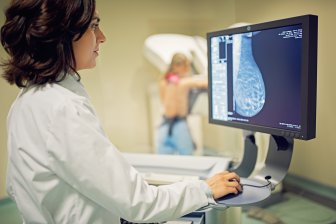For the seventh straight day, there are no new cases of the novel coronavirus reported in Nova Scotia.

In a news release, the province said the QEII Health Sciences Centre’s microbiology lab completed 355 Nova Scotia tests on Monday.
READ MORE: Coronavirus: No new cases reported in Nova Scotia for six days straight
The last positive case was reported on June 9.
“Each and every Nova Scotian has made sacrifices to get us to this place,” said Premier Stephen McNeil in a statement.
“And while we can all be pleased with our progress, it’s vital we remain vigilant. Please continue to follow all guidelines and do everything you can to keep our province safe.”

There are now two active cases in Nova Scotia, as the number of resolved cases increased from 996 to 997.
Both of the province’s active cases are in hospital, with one in an intensive care unit.
There have been a total of 1,061 positive cases in the province and 62 deaths.
READ MORE: Coronavirus: Nova Scotia goes 5 days in a row with no new cases
To date, Nova Scotia has 49,398 negative test results.
There are no scheduled COVID-19 press briefings this week as chief public health officer Dr. Robert Strang self-isolates after returning from New Brunswick for a skin cancer treatment.
Questions about COVID-19? Here are some things you need to know:
Symptoms can include fever, cough and difficulty breathing — very similar to a cold or flu. Some people can develop a more severe illness. People most at risk of this include older adults and people with severe chronic medical conditions like heart, lung or kidney disease. If you develop symptoms, contact public health authorities.
To prevent the virus from spreading, experts recommend frequent handwashing and coughing into your sleeve. They also recommend minimizing contact with others, staying home as much as possible and maintaining a distance of two metres from other people if you go out. In situations where you can’t keep a safe distance from others, public health officials recommend the use of a non-medical face mask or covering to prevent spreading the respiratory droplets that can carry the virus.
For full COVID-19 coverage from Global News, click here.
- Health task force blasted over ‘dangerous guidance’ for cancer screenings
- Dentists hesitant to sign up for federal dental plan; seniors advised to look at all options
- David Chang’s Momofuku to stop ‘chile crunch’ trademark battle after outcry
- Over 25% of young Canadian deaths linked to opioids amid pandemic: study





Comments